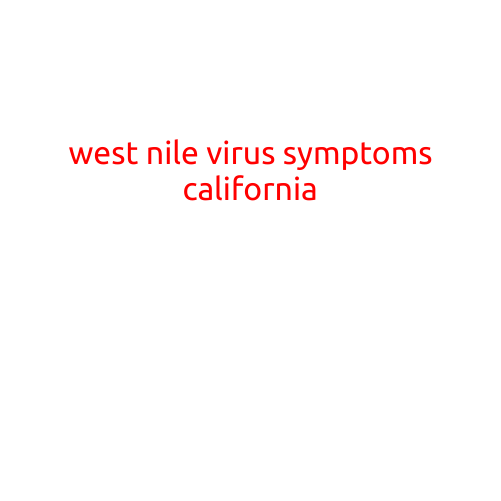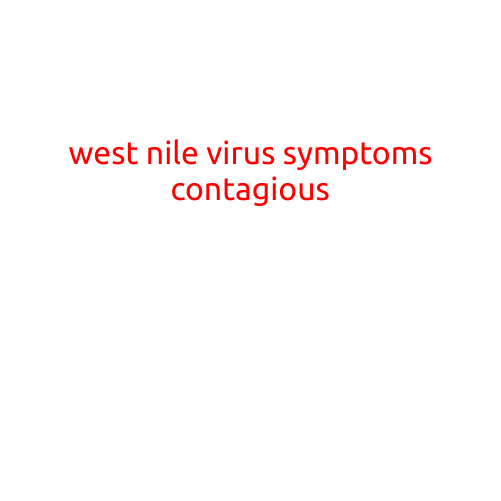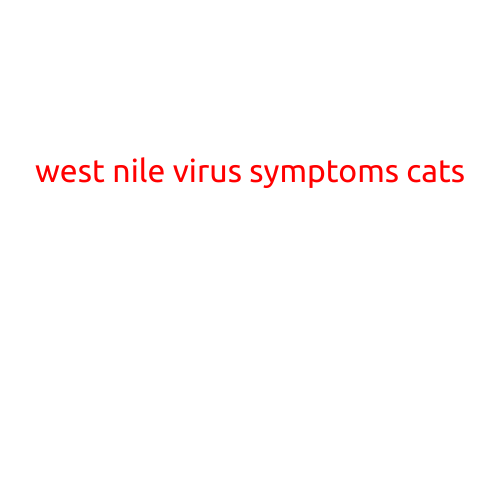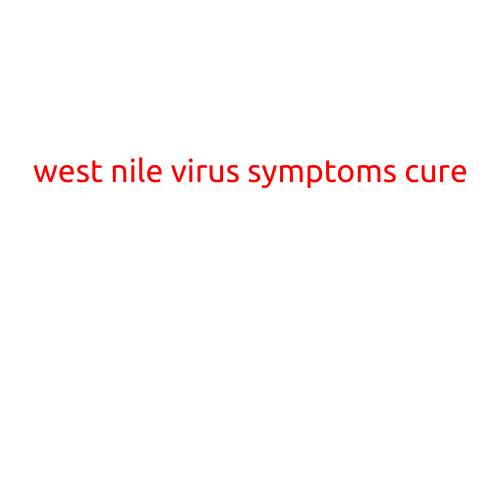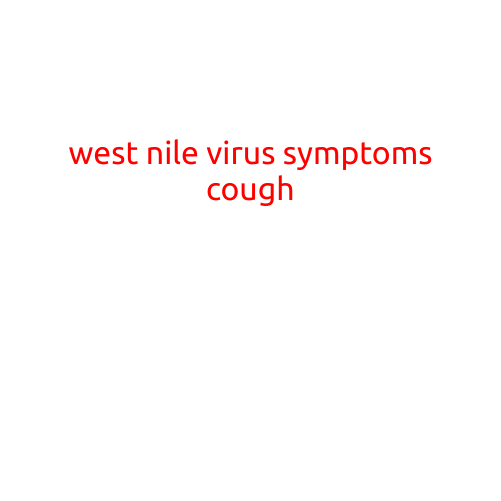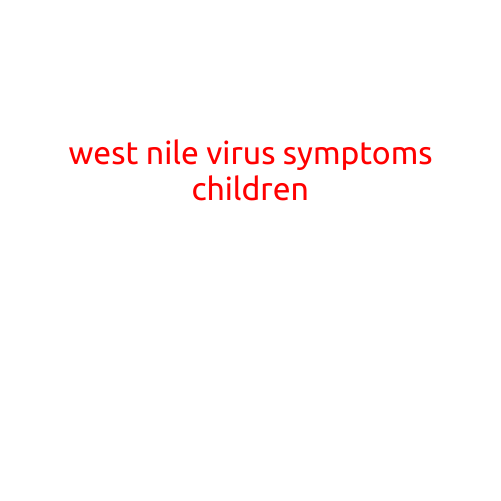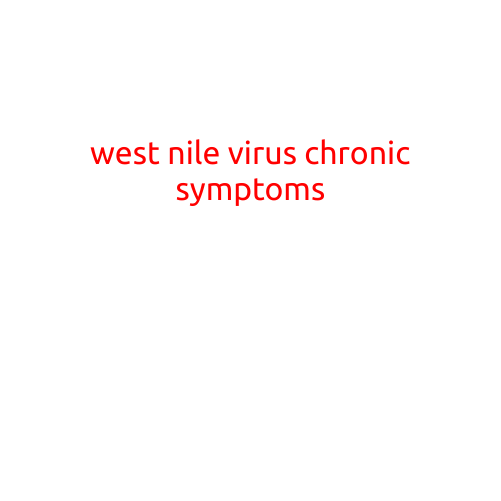
West Nile Virus: Understanding Chronic Symptoms
West Nile virus (WNV) is a flavivirus that typically causes a mild to moderate illness characterized by fever, headache, body aches, and sometimes a skin rash. However, in some cases, the virus can cause more severe and chronic symptoms, which can lead to long-term disability and even death. In this article, we will explore the chronic symptoms of West Nile virus infection and provide information on how to manage and treat them.
What is West Nile Virus?
West Nile virus is a mosquito-borne virus that is transmitted to humans and other animals through the bite of an infected mosquito. The virus was first identified in Uganda in 1937 and has since spread to many parts of the world, including North America.
What are the Chronic Symptoms of West Nile Virus?
While most people who are infected with WNV experience mild and self-limiting symptoms, some individuals may develop chronic symptoms, which can be debilitating and affect their quality of life. The chronic symptoms of WNV infection include:
- Polyneuritis: This condition is characterized by inflammation of the nerves, which can cause muscle weakness, twitching, and wasting.
- Myelitis: This is inflammation of the spinal cord, which can cause numbness, tingling, and paralysis.
- Encephalitis: This is inflammation of the brain, which can cause seizures, confusion, and memory loss.
- Meningitis: This is inflammation of the lining around the brain and spinal cord, which can cause headaches, fever, and stiff neck.
- Fatigue: This is a common symptom of WNV infection, which can last for weeks, months, or even years.
- Memory loss: Some individuals may experience memory loss, which can be mild or severe.
- Personality changes: Chronic WNV infection can also cause personality changes, such as mood swings and irritability.
- Seizures: Some individuals may experience seizures, which can be a sign of WNV encephalitis.
- Blindness: In severe cases, WNV infection can cause blindness or vision loss.
How is West Nile Virus Diagnosed and Treated?
West Nile virus is diagnosed through a combination of clinical examination, laboratory tests, and imaging studies. Laboratory tests may include:
- Blood tests: Doctors may draw blood samples to look for signs of WNV infection, such as high levels of antibodies.
- Spinal fluid tests: In cases where WNV meningitis or encephalitis is suspected, doctors may collect spinal fluid samples to check for signs of inflammation.
- Imaging studies: Doctors may use imaging studies, such as CT or MRI scans, to rule out other conditions that may be causing symptoms.
There is no specific treatment for WNV infection, but doctors may use antiviral medications, pain relief medications, and other supportive therapies to manage symptoms. In severe cases, hospitalized patients may receive intravenous fluids, oxygen therapy, and other intensive care therapies.
Prevention and Control
Preventing WNV infection is key to avoiding chronic symptoms. Some ways to prevent WNV infection include:
- Wear insect repellent: Use insect repellent that contains DEET, picaridin, or oil of lemon eucalyptus when spending time outdoors.
- Wear protective clothing: Wear long-sleeved shirts, long pants, and closed-toe shoes when spending time outdoors.
- Avoid peak mosquito hours: Mosquitoes are most active during peak hours, so try to avoid spending time outdoors during these times.
- Eliminate standing water: Mosquitoes need standing water to breed, so eliminate any sources of standing water around your home.
- Get rid of mosquito breeding sites: Regularly clean and maintain your yard to eliminate mosquito breeding sites, such as old tires, flowerpots, and bird baths.
Conclusion
West Nile virus is a serious and potentially debilitating disease that can cause chronic symptoms. While most people who are infected with WNV experience mild and self-limiting symptoms, some individuals may develop long-term consequences. Understanding the chronic symptoms of WNV infection and being proactive in prevention and control can help prevent the spread of the virus and reduce the risk of chronic symptoms. If you have been infected with WNV, seek medical attention immediately and seek support from a healthcare provider or a support group.
